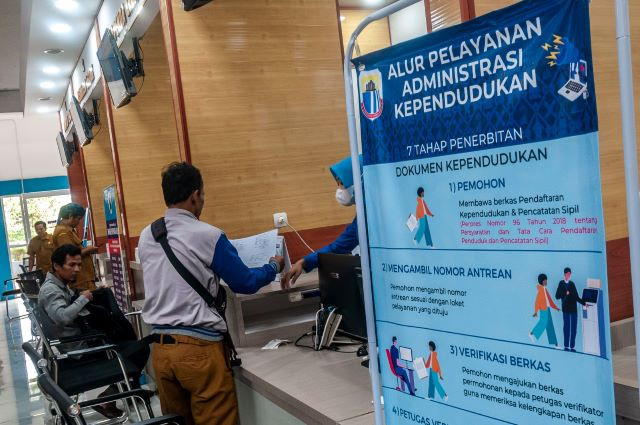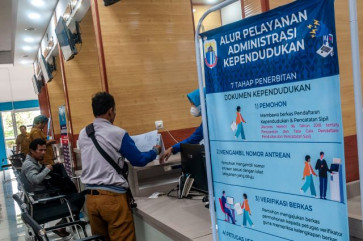Popular Reads
Top Results
Can't find what you're looking for?
View all search resultsPopular Reads
Top Results
Can't find what you're looking for?
View all search resultsThe role of tax digitalization for economic stability
A very long bureaucratic process certainly hampers the productivity of taxpayers in the production of goods and services, affecting cash flow and decreasing economic productivity.
Change text size
Gift Premium Articles
to Anyone
The digitalization of the tax system is one of the important agendas of the Taxation Directorate General in tax reform. Through the Tax Administration Core System Renewal (PSIAP) project and the development of an information system based on commercial off-the-self (COTS), the process is easier for taxpayers carrying out tax obligations.
Unfortunately, the various benefits of tax digitalization that are understood by the public today are in practical areas such as improving the quality and ease of service, productivity and accountability. Until now, the impact of digitalization in supporting Indonesia's economic stability has received little attention.
Understanding the relationship between tax and the economy is crucial. Especially now that the world is facing various types of crises such as the pandemic, in politics, energy and security. Therefore, a number of countries have conducted research to find the connection between tax system digitalization and economic stability.
For instance, Russia, which currently ranks 38th in the world in the development of digital technology, shows the impact of tax system digitalization to economic sustainability. Research by Volgograd State Technical University revealed that efficient tax administration had increased funding for the state budget by 5.8 trillion rubles (US$69.34 billion), up 9.1 percent from the previous year. Thus, the digitalization of the tax system can expand the fiscal space.
Studies in Organization for Economic Cooperation and Development (OECD) countries also have shown that digitalization has a positive relation to tax revenue and economic growth. This theory is in line with the Taxation Directorate General's Strategic Plan 2020-2024, which believes tax administration reform has the potential to increase the tax ratio by 1.5 percentage points.
The tax ratio compares the total revenue to the gross domestic product (GDP). Thus, if Indonesia's GDP is Rp 19.58 quadrillion (US$1.3 trillion) as shown by Statistics Indonesia in 2022, then the additional tax revenue from digitalization will be Rp 296.25 billion. This value is greater than the total health budget in 2022.



















